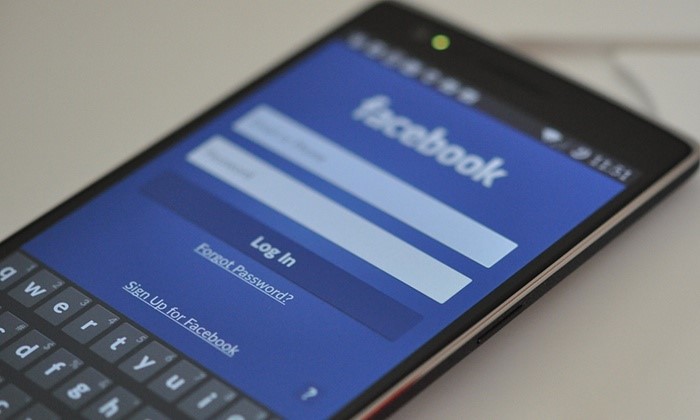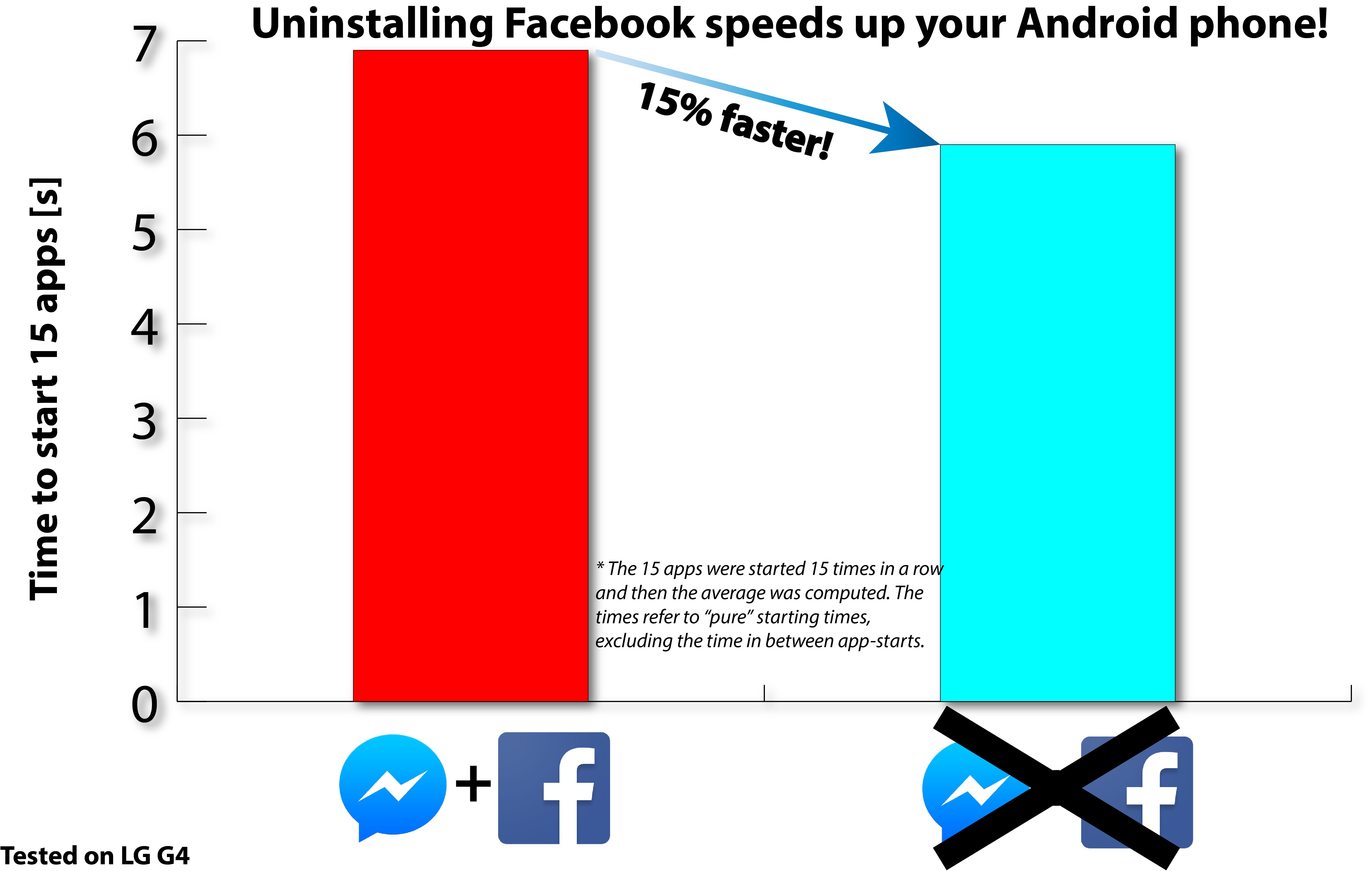
What do capuchin monkeys and the Facebook app have in common? They’re both a huge pain in the neck to deal with. Most long-time Android users will attest that the Facebook app has been nothing short of a finicky mess over the years, either slowing down their phone, draining the battery life, hogging RAM, or sometimes, all three. Despite periodic measures taken by to improve the situation, many users remained skeptical that the problem was never resolved. Unfortunately, most had naught but anecdotal evidence.
Now, we have concrete evidence: Spurred by Androidcentral’s Russell Holly revisiting the argument, Reddit user pbrandes_eth thoroughly tested the app’s impact on the performance of an LG G4. After testing the start time of 15 apps 15 times in row with and without the Facebook and Facebook Messenger apps installed, it was observed that uninstalling the apps sped up the phone by 15%.

Image courtesy of Reddit user pbrandes_eth
To perform an accurate comparison, pbrandes_eth used the DiscoMark benchmarking app to automatically calculate start-up time while taking into account a bevy of criteria, from the number of apps installed to the background processes. The phone was also restarted between trials to ensure equal conditions applied.
Guardian reporter Samuel Gibbs took the experiment one step further, and closely monitored the battery-life of his Huawei Nexus 6P over the course of a week to see whether the apps’ removal had any impact on battery life as well. Gibbs noticed that his Nexus 6P maintained an average of 20% additional battery-life for each day of his trial. As an Android user who gave up the Facebook and Facebook messenger apps a long time ago, I can attest that this is true. Removing the apps immediately boosts battery life, and as pbrandes_eth demonstrated, improves performance as well.
The question then becomes why do the Facebook apps bog down Android system so severely? The answer lies in the RAM. Technically speaking, the old argument that unused RAM is wasted RAM still holds true; but there’s more to it than that in this case.
Under normal circumstances, it’s perfectly acceptable for an unused app to run in the background—that is after all, the purpose of having sufficient RAM. By contrast, Facebook’s apps are designed to constantly provide notifications and therefore behave slightly differently. This practice even occurs in the absence of Internet connectivity at extremely frequent intervals. What’s more, Facebook apps use so much RAM that the OS is required to swap RAM in and out depending on the phone’s needs. When this occurs, the phone will instruct high consuming apps to cut down RAM use. But the only way for the Facebook app to do this is to use CPU cycles. Once the RAM is available, the Facebook apps immediately gobble it up and the cycle is renewed.
In any case, I recommend you experiment on your own and observe the difference. Facebook may be accessed with the Chrome browser and built-in cookies provide notifications.
Advertisement
Learn more about Electronic Products Magazine





